The nature vs. nurture debate may well date back millennia. When it comes to behaviour, are humans essentially born as blank slates, or do our genes determine much of our personality traits?
Whether we believe nature or nurture dictates who we become has significant implications for all our lives. On a societal level, ignoring nurture – or environmental influences – can lead to severe punishments for crimes if we deem a person’s experiences as irrelevant to their choices.
But even on a personal level, believing we were simply born to be the person we are, whether we like it or not, can be a severe handicap when it comes to building emotional resilience.
Monothology takes the view that our behaviours and even thought processes are almost entirely dictated by our environments and experiences – and not just because it’s more philosophically soothing, but because there’s plenty of research to prove it.
After all, even language is acquired rather than inherited.
You can find out why Monothology believes no person is inherently bad by reading our article on why people do bad things. In this article, we take a quick look at the most compelling research that backs the nurture side of the argument.
We also explain why this is fantastic news – with the right mindset (no hocus pocus or insensible‘positive thinking’).
Humans as Blank Slates
In our book, Monothology, we primarily discuss human behaviour through concepts such as cultural determinism, Jean Piaget’s Theory of Cognitive Development, and the sociocultural theory.
We also touch on various mend-bending concepts from environmentalism, cognitive-behavioural therapy and social learning throughout the book as we peel back the layers of our true reality and dispel the illusions created by our mind.

Essentially, humans largely start out as “blank slates” (tabula rasa), a concept that can be traced back to Aristotle but has since been championed time and time again by figures such as 17th-century philosopher John Lockeand and 20th-century “father of behaviourism” John B. Watson.
So, if not genes, what shapes our personalities and behaviours as we age?
Deep Down, We’re All Sheep
We develop our personalities largely by copying other people. Of course, we’re equipped with instincts that let us know certain things are good or bad for our survival. However, every aspect of your personal identity – from the language you speak to the clothes you wear and your political outlook – is culturally and environmentally dependent.
Nobody is born better or worse than anybody else, no matter how you may view yourself or other people.
You may think those who view themselves as above others have high self-esteem and a comfortable life, but the opposite is usually true (check out Why Do People Do Bad Things?).
As much as our experiences and perceptions make us unique, our fundamental operating system is almost exactly the same.
When we’re children, we learn what’s rewarding and what isn’t based on how we perceive our experiences, which we have little control over. We pick up behaviours from superiors and peers through processes such as conditioning, positive and negative reinforcement, and observation.
According to Albert Bandura’s Social Learning Theory, we develop most of our behaviours by watching others, reproducing their behaviours, and then learning about the consequences through feedback. This suggests that human behaviours ranging from manners to moral reasoning are learned rather than inherited.
So, are you just a product of your environment? There’s a lot more to it than that.
How Your Ancestors Have Shaped You
The genes you inherit from your ancestors might mean you have certain attributes in common, but it’s not necessarily their genes that shape your personality, thought processes or outlook.
The cumulative cultural effect describes how cultural knowledge, including skills and perceptions, is transferred and built on over generations. Humans have the ability to pass down their knowledge time and time again. This allows societies to refine (or not, in some cases) and accumulate knowledge, which has led to the rapid rise of science, technology, and many aspects of our daily lives that we take for granted.
The reason you speak your language is due to the environment in which you were raised. But your language has been evolving for centuries, millennia, tens of thousands, perhaps even millions of years. You could trace the events that led to the development of language back through history indefinitely.
The cumulative culture effect doesn’t just apply to societies and large groups. Families can pass down certain attitudes and beliefs to their children, who can raise their children with similar perspectives, and so on.
Behaviours can also remain within families for generations. After all, according to many theories, we learn just about all our behaviours through imitating the behaviours of others and responding to the feedback.
This may be the real reason why trauma runs in families – we just keep repeating the same behaviours that we learn while we’re developing. Blaming genetics in every mental health case and attempting to fix the problem with medication may, in some cases, prevent or delay the healing process while, ironically, ensuring it continues repeating indefinitely until a real intervention comes along – but more on that in an upcoming article.
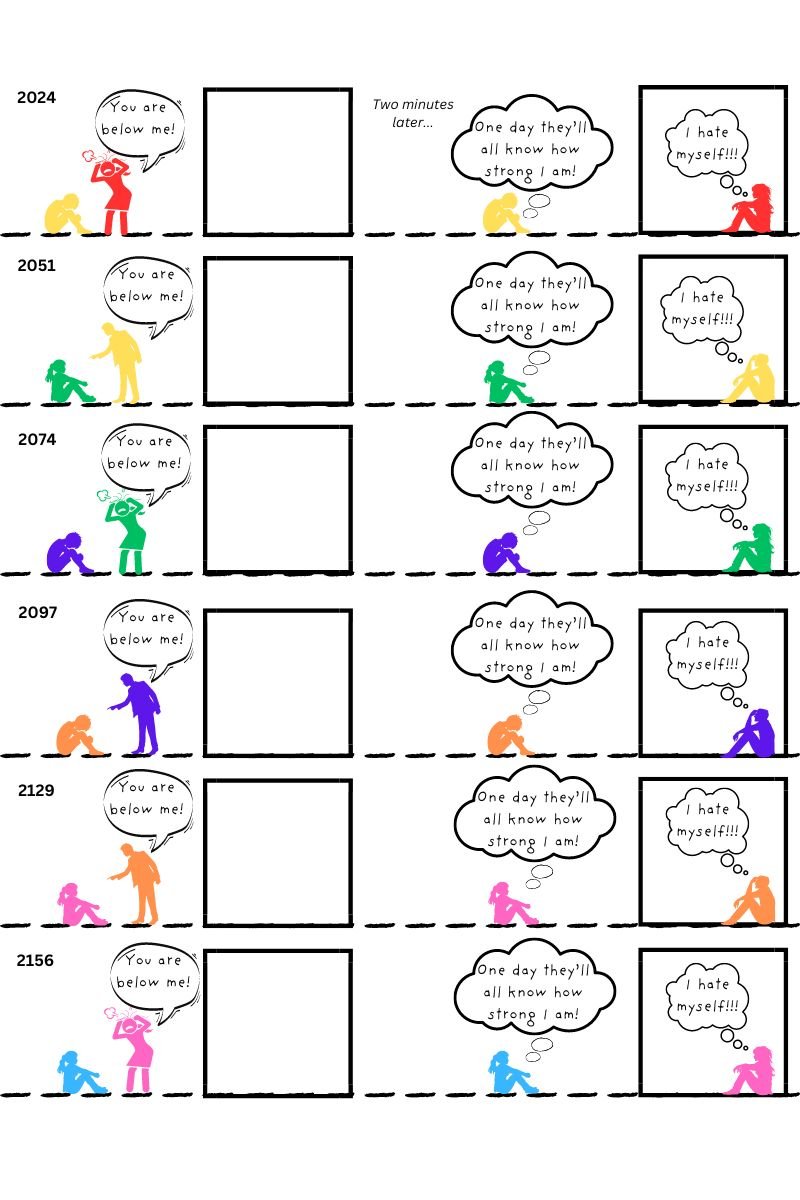
The key reason why your ancestors have played a role on who you are today is more concerned with the cumulative cultural effect than genetics. Though that’s not to suggest genetics play no role whatsoever.
Genes and Personality Development
Not everybody agrees on what exactly a personality is, but the Five-Factor Model suggests there are five broad dimensions of human personality. These are:
Openness to Experience
People with high openness to experience tend to be curious, imaginative and creative. Those with low openness may be more oriented towards practicality and routines, preferring familiarity over novelty.
Conscientiousness
Highly conscientiousness people are reliable, organised, disciplined and goal-oriented. If you lie on the opposite side of the scale, you might be less organised and more impulsive.
Extraversion
Extroverted people are often energetic and outgoing and sociable while assertive. Introverted people tend to be more reserved and more appreciative of their alone time.
Agreeableness
Agreeable people may be more compassionate, trusting and cooperative than disagreeable people. However, disagreeable people are often critical when it’s required and willing to stand up for others.
Neuroticism
Neuroticism is associated with anxiety, sensitivity and emotional instability. Those with low neuroticism may be viewed as calm and emotionally stable.
According to these ‘Big Five’ personality traits, nothing you’re born with is inherently ‘bad’ – or good for that matter. There’s nothing wrong with being either extroverted or introverted, nor does naturally being disorganised make you a worse person than somebody who thrives on routine.
Likewise, being more anxious or sensitive than average isn’t necessarily a bad thing, unless it impacts your ability to live your life the way you want to. In the grand scheme of things, early human tribes would’ve benefited from people that anticipated threats early and reconciled disagreements using their heightened empathy.
The reason we discuss the Big Five is because, according to a variety of studies on twins, heritability accounts for 40–60% of our personality.
However, regardless of your genetic makeup, how your biologically predisposed traits manifest is entirely dependent on your environment.
A Brief Look at the Human Phenotype
A phenotype describes all the observable states of a human (or any organism) that arise from the interaction of their genetic makeup and their environment.
Your phenotype includes physical traits like hair colour, skin tone and height, biochemical traits from metabolic rates to blood type, and physiological traits such as immune response and lung capacity. It also includes intelligence, behaviour tendencies and personality. Specifically, your phenotype describes how those traits express themselves in conjunction with environmental influences.
For example, your diet, exposure to sunlight and health can impact how genetic traits like skin tone, height and hair colour manifest. Similarly, even though your genes have a bearing on your personality, ultimately, the environmental factors that influence your development will determine how it manifests.
As we’ve already mentioned – even complex language is not inherited. You are biologically equipped from birth with the potential to develop complex language skills. But whether you ultimately learn a language depends on your environment. In extreme cases of neglect, some children fail to learn a language during their formative years, making it virtually impossible for them to acquire language skills in adulthood.
While your genes ensure you had the potential to understand language, how your language skills manifest – including your specific accent – is dependent on your environment. Personality development works much the same.
We don’t have much or any control over many of those environmental factors during our formative years, and our control over them remains limited for life. Regardless of our genetic makeup, who we become is largely dictated for us until we gain a form of independence in adulthood.
Contrary to popular belief, personalities aren’t fixed. People can and do change all the time. Being open to new information and a change in perspectives can produce miracles – even if there’s nothing actually miraculous about it.
The Neuroplastic Human Brain
Our brain is made up of an estimated 86 billion neurons, which are intricately connected through a network of synapses – about 100 trillion of them. These synapses allow our neurons to communicate with each other, and the formation and strengthening of these neural connections are essential for learning and memory.
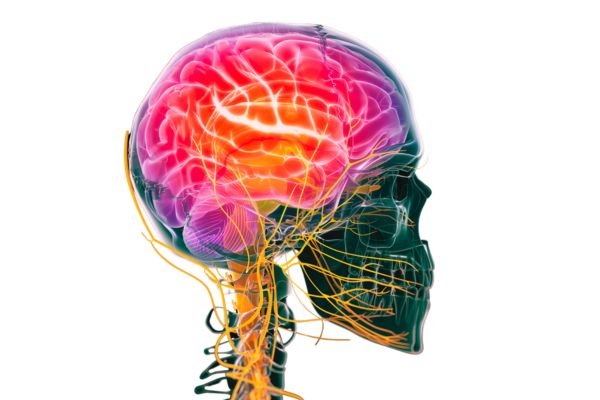
During our formative years, those synapses form at an incredible rate. As they form and strengthen, they largely determine our thought processes and behaviours as adults.
When you assume a ‘bad’ person should know better, they’re actually thinking and behaving in accordance with the conditioning they received as a child. All humans, just like other animals, are constantly reacting to internal states and external stimuli in what they believe to be best for their survival. And what they unconsciously and subconsciously believe to be best for their survival is based on the information and perceptions stored in their brain, largely formed during their formative years.
But while our brains are at their most neuroplastic during childhood, they remain neuroplastic throughout our lives. This means that change is never out of the question. We just need to expose ourselves to new information and perspectives so that we can improve our brain’s operating system, including its decision-making processes.
But in order to actually utilise new information, you need to adopt a growth mindset.
Rewiring Your Brain with a Simple Change in Outlook
How to define whether a mind is open or closed is debatable. For the sake of argument, let’s view an open mind as one that is characterised by curiosity and receptivity to new experiences, and a closed mind is characterised by rigid thinking – somebody who is ‘set in their ways’.
Plenty of philosophical outlooks emphasize the advantages of an open mind. But the neuroscience demonstrates that it really does bring a broad array of tangible cognitive benefits.
Research shows that individuals high in openness to experience have stronger activity in brain regions related to cognitive flexibility, such as the prefrontal cortex. The prefrontal cortex plays a significant role in executive functions like problem-solving, decision-making and adaptability, which are essential for learning and neural rewiring.
Many studies have shown that learning new skills and engaging in new activities enhance our brain’s neuroplasticity. Such activities can include learning a language or a musical instrument, or simply exploring new environments.
Researchers at the University of Texas at Dallas demonstrated that older adults who learn new, mentally challenging skills show significant increases in brain connectivity and memory improvement. These results suggest that engaging in novel, complex activities promotes neural plasticity at any age.
How to Open Your Mind
If you’ve been set in your ways for years or decades, you might believe change is out of reach. But that’s almost never true for anybody. If you want to open your mind, you might first need to change your perspectives.
In our opinion, one of the most beneficial perspective shifts involves seeing through the illusion of human autonomy. We like to think we’re in full control over our thoughts and actions, completely separate from all other natural phenomena, but this misguided perception can lead to self-blame and judgement of others, among other negative consequences. By finding out what actually powers us as human beings, your entire worldview may change – and your reactions along with it.
Our book on Monothology has been specifically written to open your mind by dispelling the autonomy illusion and peeling back the layers of our true reality through concepts ranging from evolution to quantum consciousness. It’ll not just amaze you, but also unlock innate values like empathy, self-compassion, and a deep appreciation for our very existence.
With an open mind and a more accurate perception of what really drives humanity, including individuals and collectives, you’ll undoubtedly start reacting differently to the information you receive and the environments you face.
Armed with this wisdom, you might find psychology and personal development books, and even therapy, much more effective – and efficient.
For practical tips and advice on how to adopt a growth mindset, we recommend “Mindset: The New Psychology of Success” by Carol S. Dweck. This book is not just about changing your perspectives to achieve material success but more about achieving success in every area of life, such as education, business, relationships and personal well-being.
Cognitive-Behavioural Therapy can also be highly effective for those who can access it. This approach encourages you to challenge rigid and negative thought processes and instead adopt more flexible ways of thinking. Neuroimaging studies have shown that CBT can lead to structural changes in the brain, particularly in areas involved in emotional regulation and cognitive flexibility, such as the prefrontal cortex and amygdala.
However, if therapy is prohibitively costly or inaccessible for any other reason, you can definitely still open your mind and gain a deeper appreciation for life and yourself without it. Start with our book on Monothology to have your world opened up and mind blown in the process. Then, if you need more practical tips, your new open mind will ensure you can get the most out of books like Mindset: The New Psychology of Success.




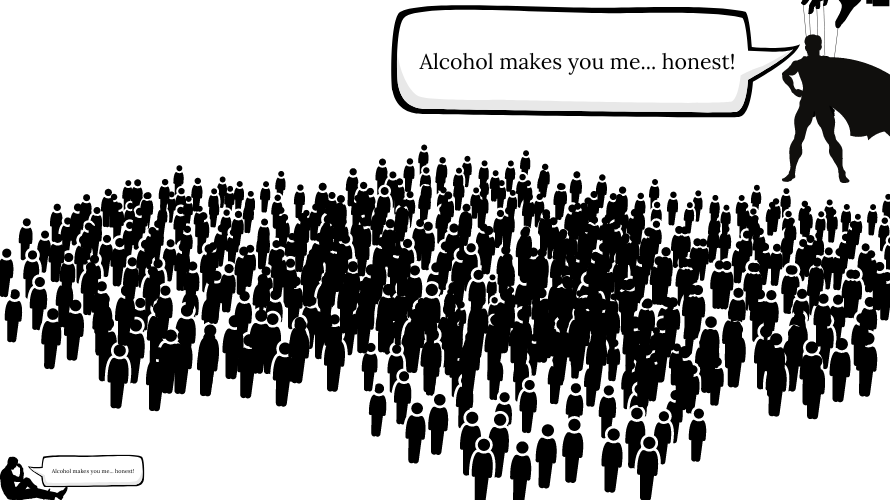
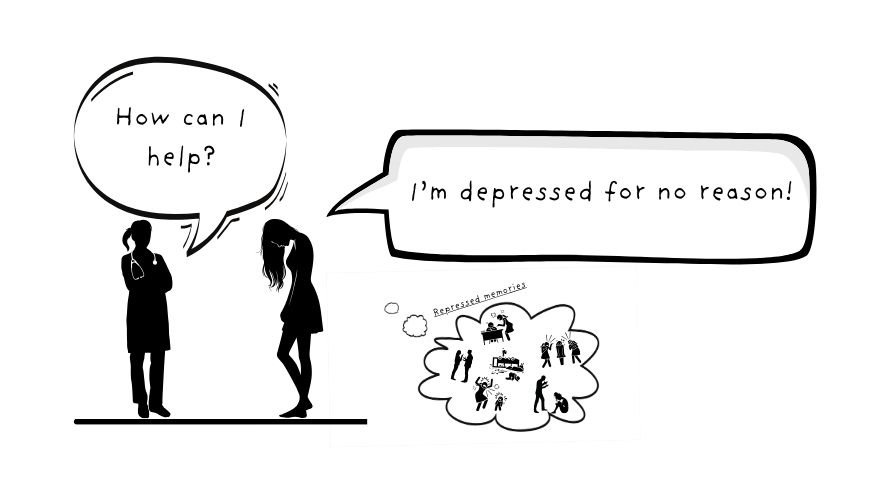


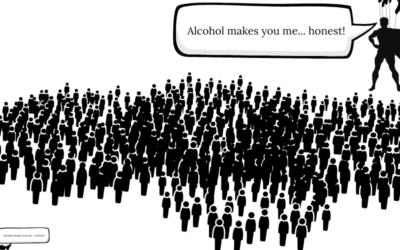

0 Comments